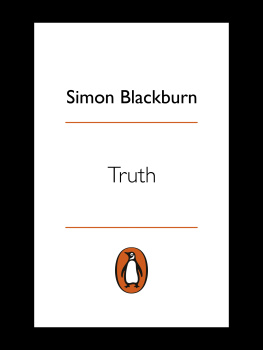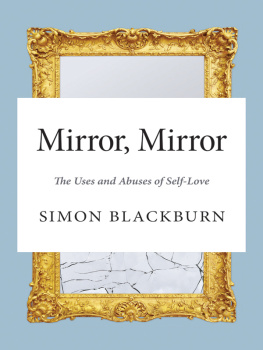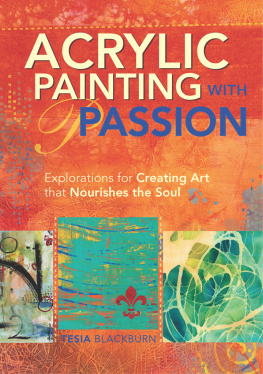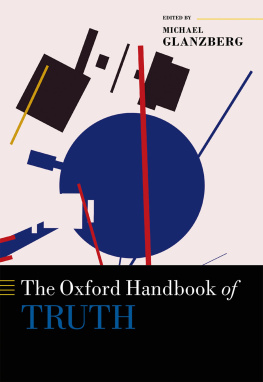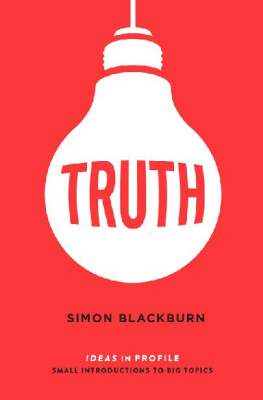Preface
It is easy to feel frightened at the beginning of the twenty-first century. And among the most frightening things are the minds of other people. The beliefs and faiths that move people to behave as they do are opaque to others; as we read or watch the news, lunacy together with mutual suspicion and contempt seem to be the order of the day.
If only people would be sensible. If only they would submit to the order of reason. This has been the lament of philosophers for millennia, and in times like these it becomes the lament of more than mere philosophers. But it is to the philosophical tradition that we have to look if we want to know what is required to be sensible, or what the order of reason might be.
Unfortunately, when we do look to the tradition, the picture is confused and convoluted, and it may not give us much help. This is particularly true if we look to the recent picture. Many of the philosophers I talk about in this book have been suspicious of the whole project of epistemology of saying which intellectual habits deserve respect, and which ones do not. Words like relativism and post modernism signal a resulting culture in which anything goes, and although this itself is an object of suspicion to innocent outsiders, they are unlikely to understand them well enough to oppose them effectively. This book tries to help us to do better. It is therefore something of a guide for the perplexed.
In writing it I have many sources to acknowledge. The material was presented as a set of eight Gifford lectures at the University of Glasgow in the spring of 2004, and my first debt is to the Trustees of that excellent fund, and to the questioning audience. Lord Giffords will is a also contains material on Hume and Collingwood given to a historical seminar run by John Marenbon in Trinity College, Cambridge, shortly after I arrived in 2001, and has benefited from the discussion the paper received on that occasion.
In 2001 an Erskine Fellowship at the University of Canterbury, in Christchurch, New Zealand, enabled me to try out many of these ideas, and I owe thanks to the Trustees of the fund, and particularly to Cindy and Graham Macdonald for the invitation. I am also grateful to the City University of New York graduate school which invited me to give joint seminars with Paul Horwich in autumn 2003, and to Paul himself for his insights and criticisms on those occasions.
Finally, like all writers, I owe a frighteningly large debt to those immediately around me: college and faculty, editors, colleagues and students. As always I had the unceasing support of my wife Angela, who had to put up with it all.
Simon Blackburn
Cambridge, 2004
1
Faith, Belief and Reason
The human understanding is not composed of dry light, but is subject to influence from the will and the emotions, a fact that creates fanciful knowledge; man prefers to believe what he wants to be true.
Francis Bacon, The New Organon, XLIX, p. 44
1. Cliffords Duties
In the Introduction I mentioned that for classical sceptics, a dearth of arguments, or a clash of countervailing arguments, led to peaceful suspension of belief, whereas in our own times it is seen more as a licence for people to believe what they like. Perhaps this is a consequence of our general appetite for freedom and licence. And there is a general impression that scepticism, like atheism, is a bad thing. Not having convictions is often bad form, unsociable or unpatriotic. Faith is a word with a positive ring to it, although of course it rings really positively only when it means faith like ours rather than the conflicting faiths of others.
Insincerity still bothers us: even a politician should not be caught saying what he does not believe. But as for what a person does believe, well that, we tend to think, is much more his or her own business. It is a morally important fault, we suppose, if politicians claim that some country has weapons of mass destruction when they know that it does not, or if NASA says that a shuttle is safe when it knows it is far from it. But it is not a morally important fault if they believe the same thing although all the evidence points against it. How we weigh evidence, like religion, tends to be regarded as a private affair. Perhaps it does not matter if a thousand flowers bloom, or if we are none too good at distinguishing weeds from flowers. Perhaps our situation is like that of Rome as described by Gibbon: The various modes of worship, which prevailed in the Roman world, were all considered by the people, as equally true; by the philosopher, as equally But is it really the cranky, oversensitive philosopher who spoils the party?
William Clifford was a nineteenth-century Cambridge mathematician and polymath, who partly anticipated Einstein by claiming that mass and energy are each perturbations in space-time. He also has an algebra named after him. He is remembered in philosophy mainly for one classic essay, The Ethics of Belief, and that in turn is famous because of the reply to it given by the American philosopher William James. Their dispute may appear to have a dated air about it, defining as it does the state of late-Victorian anxiety specifically about religious faith. But philosophically the issues it raises go deeper than that. They concern not only the

